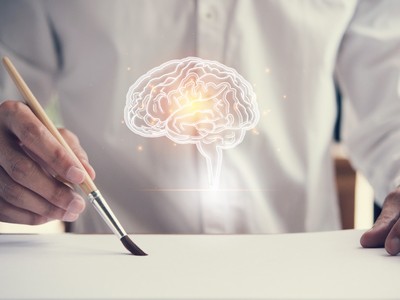
Depression Symptoms In Men Psychologist Surfers Paradise (07) 5539 9798
Anxiety And Depression Psychologist Surfers Paradise

Introduction: My Depression Is Getting Worse Psychologist Surfers Paradise
Anxiety and anxiety are 2 of the most common mental health conditions that people face today. While they may look like different conditions, they are frequently interconnected and can have a substantial effect on a person's overall well-being. In this short article, we will explore the connection between stress and anxiety and depression, the signs related to each condition, and what steps people can take to handle and conquer these challenges.
Understanding Stress and anxiety and Depression
What is Anxiety?
Anxiety is a natural response to tension or danger. It is characterized by sensations of anxiousness, concern, and fear about daily scenarios. While it is typical to experience anxiety from time to time, chronic stress and anxiety can interfere with everyday activities and effect one's quality of life.
What is Depression?
Depression, on the other hand, is a mood condition that affects how you feel, think, and deal with everyday activities. It surpasses normal sensations of sadness or grief and can continue for weeks, months, and even years. Depression can make it difficult to function in various locations of life, consisting of work, relationships, and self-care.
The Connection In Between Anxiety and Depression
Anxiety and anxiety typically go together. Lots of individuals How To Cope With Depression Psychologist Surfers Paradise who experience stress and anxiety likewise struggle with symptoms of anxiety, and vice versa. The link in between the two conditions can be credited to a number of elements:
Chemical Imbalance: Both anxiety and anxiety are believed to involve an imbalance of neurotransmitters in the brain, such as serotonin and dopamine.
Shared Genetic Aspects: Research study suggests that there might be a genetic predisposition for establishing both stress and anxiety and depression.
Stressful Life Occasions: Traumatic experiences or considerable life occasions can set off both stress and anxiety and depression symptoms.
Negative Thinking Patterns: Individuals with anxiety tend to have unfavorable thoughts and worry exceedingly about future events. These thought patterns can add to the development of depression.
Physical Signs: Stress and anxiety and anxiety can manifest with similar physical symptoms, such as fatigue, sleep disturbances, and changes in appetite.
Symptoms of Anxiety
Anxiety can manifest in numerous ways and might present different signs in each individual. Some typical symptoms of stress and anxiety include:
Excessive Concern: Persistent and excessive fretting about daily circumstances, even when there is no apparent factor for concern.
Restlessness: Feeling on edge or not able to relax, typically accompanied by physical symptoms like trembling or fidgeting.
Difficulty Focusing: Trouble focusing or remaining present due to racing ideas or preoccupation with worry.
Irritability: Feeling easily frustrated or upset, in some cases without a clear cause.
Sleep Disturbances: Sleeping disorders or restless sleep due to racing ideas or worries.
Physical Signs: Anxiety can likewise manifest physically, causing symptoms such as fast heartbeat, shortness of breath, dizziness, or gastrointestinal issues.
Symptoms of Depression
Depression can differ in intensity and discussion from person to individual. Some typical symptoms of anxiety include:
Persistent Sadness: Feeling unfortunate, empty, or helpless for an extended period, frequently accompanied by tearfulness.
Loss of Interest: Disliking activities as soon as taken pleasure in and experiencing an absence of motivation.
Changes in Hunger: Substantial weight loss or gain due to changes in appetite or consuming habits.
Fatigue: Feeling tired and doing not have energy, even after getting adequate sleep.
Difficulty Focusing: Trouble focusing, making choices, or remembering details.
Suicidal Ideas: In serious cases, anxiety can lead to thoughts of self-harm or suicide. It is important to seek assistance if you experience these thoughts.
How to Handle Stress And Anxiety and Depression
Managing anxiety and anxiety needs a detailed method that deals with both the physical and psychological aspects of these conditions. Here are some techniques that can help:
Seek Professional Help: Talk to a mental health professional, such as an anxiety psychologist in Surfers Paradise, who can provide a precise medical diagnosis and develop an individualized treatment plan.
Medication: In many cases, medication may be recommended to assist manage symptoms of anxiety and anxiety. A certified doctor can figure out if medication is necessary.
Therapy: Cognitive-behavioral treatment (CBT) and other evidence-based treatments can help individuals recognize negative idea patterns, establish coping mechanisms, and improve overall well-being.
Self-Care: Take part in activities that promote self-care, such as regular workout, practicing relaxation techniques (e.g., deep breathing or meditation), guaranteeing adequate sleep, and maintaining a well balanced diet.
Social Assistance: Connect to friends, household, or support system who can offer understanding and encouragement during hard times.
Avoid Drug abuse: Substance abuse can worsen symptoms of anxiety and anxiety. It is necessary to avoid self-medicating with drugs or alcohol.
Frequently Asked Questions
- Anxiety is characterized by excessive concern and fear about daily circumstances, while anxiety involves consistent feelings of sadness or despondence that affect day-to-day functioning.
- Yes, anxiety is thought about a mental illness when it disrupts daily life and triggers considerable distress.
- Signs of depression in males may include irritation, anger or aggression, increased risk-taking behavior, substance abuse, or physical symptoms like headaches or digestive issues.
- While there is no definitive treatment for stress and anxiety and anxiety, they can be efficiently managed and treated with the right combination of therapy, medication, and self-care strategies.
- Yes, depression is a mental disorder characterized by persistent sensations of sadness, hopelessness, and a loss of interest in activities when enjoyed.
- Offer support and motivation, listen without judgment, and motivate them to seek expert help. Educate yourself about their conditions to much better understand their experiences.
Conclusion
Anxiety and depression are complicated conditions that frequently exist side-by-side and can significantly affect a person's well-being. Comprehending the connection in between these 2 conditions is crucial for effective treatment and management. By looking for professional assistance, practicing self-care, and constructing a strong support system, people can take steps towards overcoming anxiety and depression and gaining back control over their lives. Bear in mind that you are not alone in this journey, and there is wish for a brighter future.
Depression Disorder Psychologist Surfers Paradise
Is Depression A Mental Illness Psychologist Surfers Paradise
Surfers Paradise Chiropractic Centre-Dr. Bruce Whittingham
12 Thomas Drive, Surfers Paradise QLD 4217
(07) 5539 9798
https://surfersparadisechiropractic.com.au